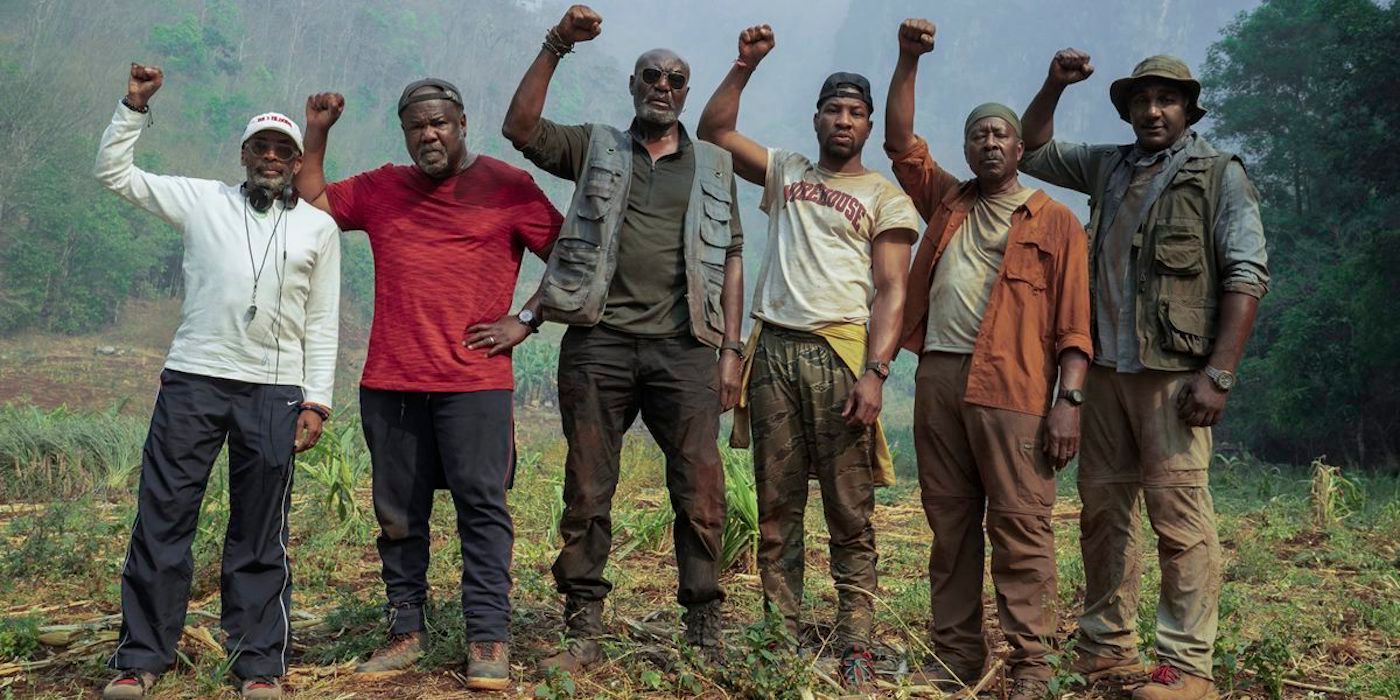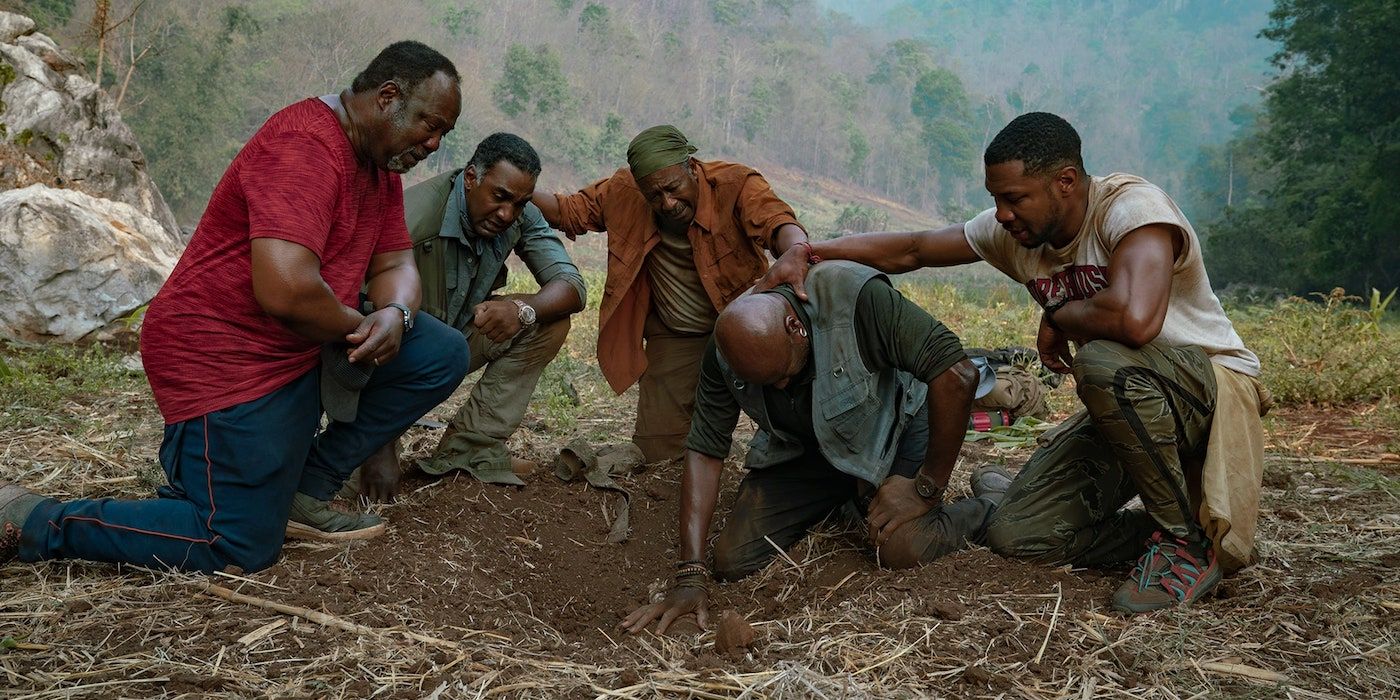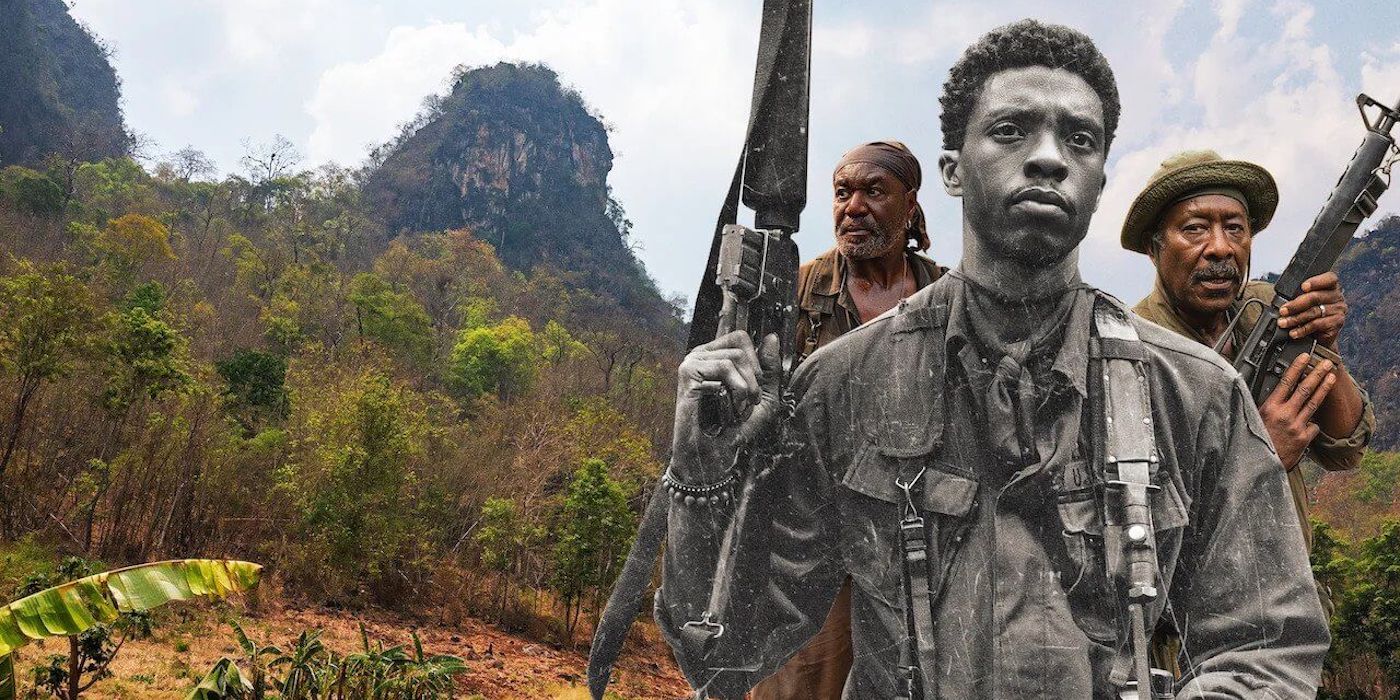WARNING: The following contains spoilers for Spike Lee's Da 5 Bloods, now available on Netflix.
Chadwick Boseman's popularity has hit meteoric heights after appearing in the Marvel Cinematic Universe as Black Panther. It's safe to say King T'Challa is his biggest role yet but in Spike Lee's Da 5 Bloods, he swaps the superhero narrative to play a U.S. freedom fighter in the Vietnam War.
In the movie, he's tussling with the oppression of black people back home as he lays his life on the line, leading troops against the Viet Cong. However, while fans were expecting his character, Commander Norman Earl "Stormin' Norman" Holloway to play a consistent part in the film, he ends up being a ghost that's only seen in flashbacks.
Now, while Norman's dead in the present, that doesn't mean his role isn't pivotal even as an apparition. In fact, it informs the Bloods' entire journey from soldiers to retired vets. Viewers see Norman leading them in Vietnam, shooting down the enemy with Paul (Delroy Lindo), Otis (Clarke Peters), Eddie (Norm Lewis) and Melvin (Isiah Whitlock Jr.). He's revered as their leader not only because he sacrificed his life in battle, but because he also taught them about life, love and politics. Norman is considered a brother by the crew, but as Otis reveals, he's a mentor who expanded their minds in ways they never thought possible.
It's why the Bloods returned to Vietnam to dig up his remains so he could have a hero's burial back home. However, they've also buried him at a war site where they hid a case of gold that America sent for Vietnamese informants. Otis has arranged for them to kill two birds with one stone, but when Paul's son, David (Jonathan Majors), joins the mission, he suspects there's more to the Norman story. After all, Paul is suffering PTSD big time and calling out to Norman in his dreams, which worries the rest of the gang.
Eventually, it becomes clear that the gold and Norman have a connection that's more than superficial or sheer coincidence because Norman's the one that encouraged the crew to steal it for themselves and report it as missing. They hid it as they couldn't transport it back to America but now, Otis has diplomatic contacts that can facilitate both treasures being sent home. Norman, though, wanted the gold to be given to Black people as reparations, which endangers the current mission and reveals the truth about his death.
It turns out he wasn't killed by a Vietnamese soldier, but by Paul. Taking enemy fire in the downed plane they found the gold, while Norman was laying down cover, Paul turned around to kill a soldier than snuck up on them. As he spun, though, with his itchy trigger finger, the startled Paul mortally wounded Norman. He's lived with this repressed guilt ever since, keeping it a secret to the point he's grown so angry he doesn't want to share the gold with his son or Black people in America. It's a reminder it's his fault Norman's not alive to see the dream so Paul wants to selfishly keep the gold and live his days out lavishly, all so he can dull the pain.
It's heartbreaking knowing how Norman became a figment of imagination like this but Paul does gain forgiveness of sorts when he breaks away from the crew with his share. He's ambushed by bounty hunters sent by their traitorous contact Desroche (Jean Reno), and after being bitten by a snake, with the poison coursing through his veins, he hallucinates Norman telling him it's okay. It fits Norman's character as he died knowing it was an accident, and right after Paul accepts it's not his fault, the locals shoot Paul in a grave he dug, allowing him to unite with his comrade in the afterlife.
Starring Clarke Peters, Delroy Lindo, Isiah Whitlock Jr., Norm Lewis, Jonathan Majors, Chadwick Boseman and Melanie Thierry, Da 5 Bloods is currently streaming on Netflix.



